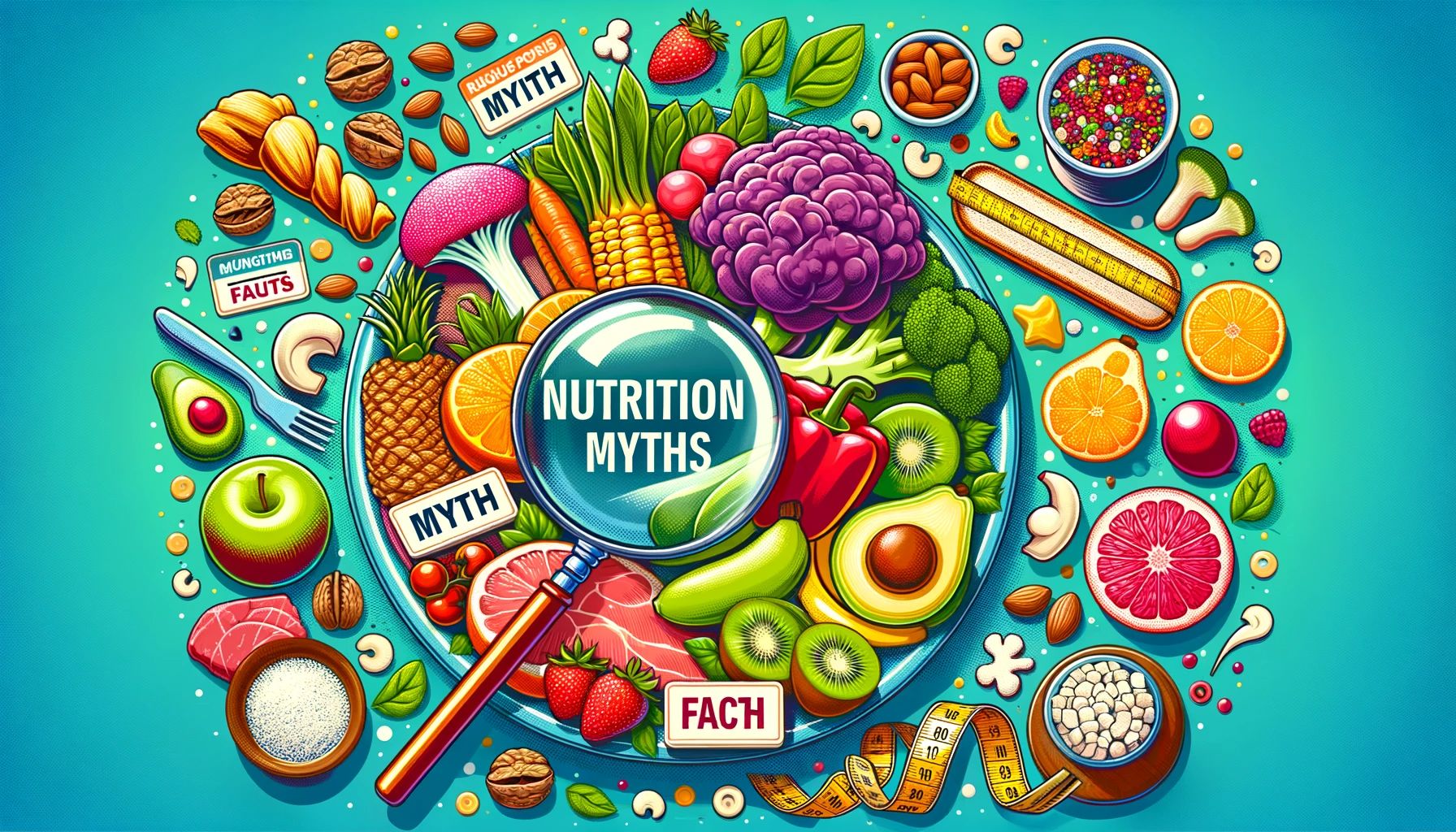Debunking Common Myths of Proper Nutrition

In today's world, where information is at our fingertips, deciphering fact from fiction in nutrition can be daunting. Numerous myths surround proper eating habits and dietary choices, often leading to confusion and unhealthy practices. This article aims to debunk some of the most prevalent myths in nutrition and shed light on what constitutes truly healthy eating.
Myth 1: Carbohydrates Make You Fat
Debunked: Carbohydrates, often vilified in diet culture, are essential for our bodies. They are the primary source of energy, especially necessary for brain function. The key is to choose complex carbohydrates like whole grains, fruits, and vegetables, which provide fiber and help in sustained energy release, unlike simple carbs found in sugary snacks.
Myth 2: Avoid Fats for a Healthy Diet
Debunked: Not all fats are created equal. While trans fats and saturated fats should be limited, monounsaturated and polyunsaturated fats, found in avocados, nuts, and fish, are beneficial. These healthy fats are vital for nutrient absorption, brain health, and heart health.
Myth 3: High-Protein Diets are the Best for Weight Loss
Debunked: While protein is an important part of a balanced diet and can aid in satiety, an excessively high-protein diet, especially those that severely limit other nutrients, is not sustainable or necessarily healthy. Balance is key; include lean protein sources along with carbohydrates and fats for a well-rounded diet.
Myth 4: Dietary Supplements Can Replace Whole Foods
Debunked: Supplements are designed to fill in nutritional gaps, not replace whole foods. Real foods provide a complex nutritional matrix that is impossible to replicate with supplements. Relying on a variety of fruits, vegetables, grains, and proteins is the best way to receive the nutrients your body needs.
Myth 5: ‘Detox’ Diets Cleanse Your Body
Debunked: The concept of detoxifying diets is a common myth. Our bodies are naturally equipped with organs like the liver and kidneys to detoxify and eliminate toxins. Rather than opting for drastic detox diets, focus on a balanced diet rich in fruits, vegetables, and water to support the body's natural detoxification process.
Myth 6: Skipping Meals Aids in Weight Loss
Debunked: Skipping meals, particularly breakfast, can disrupt blood sugar levels, leading to increased hunger and potentially resulting in overeating later. Consistent, balanced meals are more effective for weight management.
Myth 7: Gluten-Free Diets are Healthier
Debunked: Unless you have celiac disease or a gluten intolerance, there's no scientific evidence to suggest a gluten-free diet is healthier. In fact, such diets can lack essential nutrients found in whole-grain wheat products.
Conclusion
Nutrition is complex, and what works for one person may not work for another. However, understanding and debunking common nutrition myths is a step towards making informed and healthy dietary choices. Remember, a balanced diet rich in fruits, vegetables, whole grains, lean proteins, and healthy fats is key to long-term health.